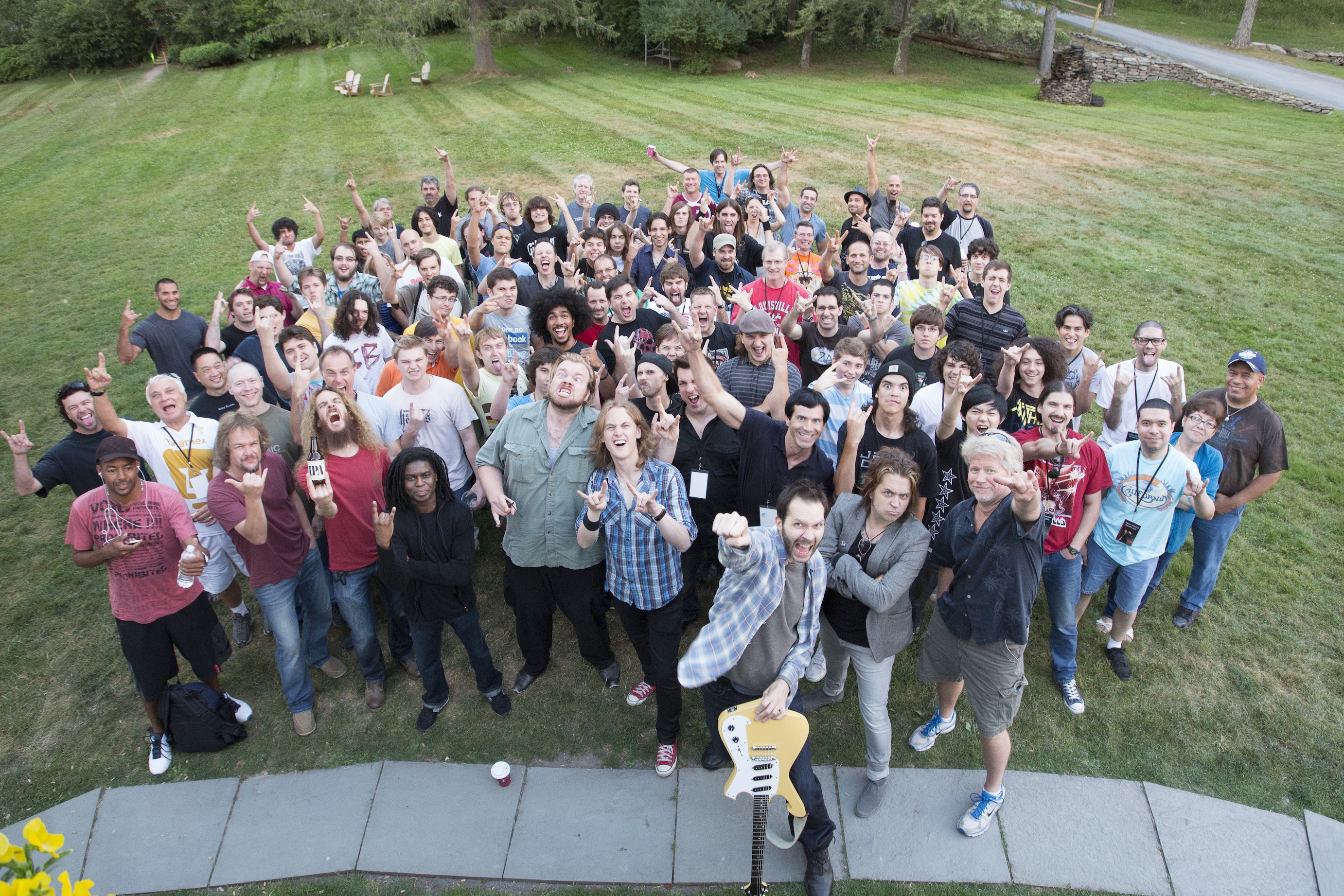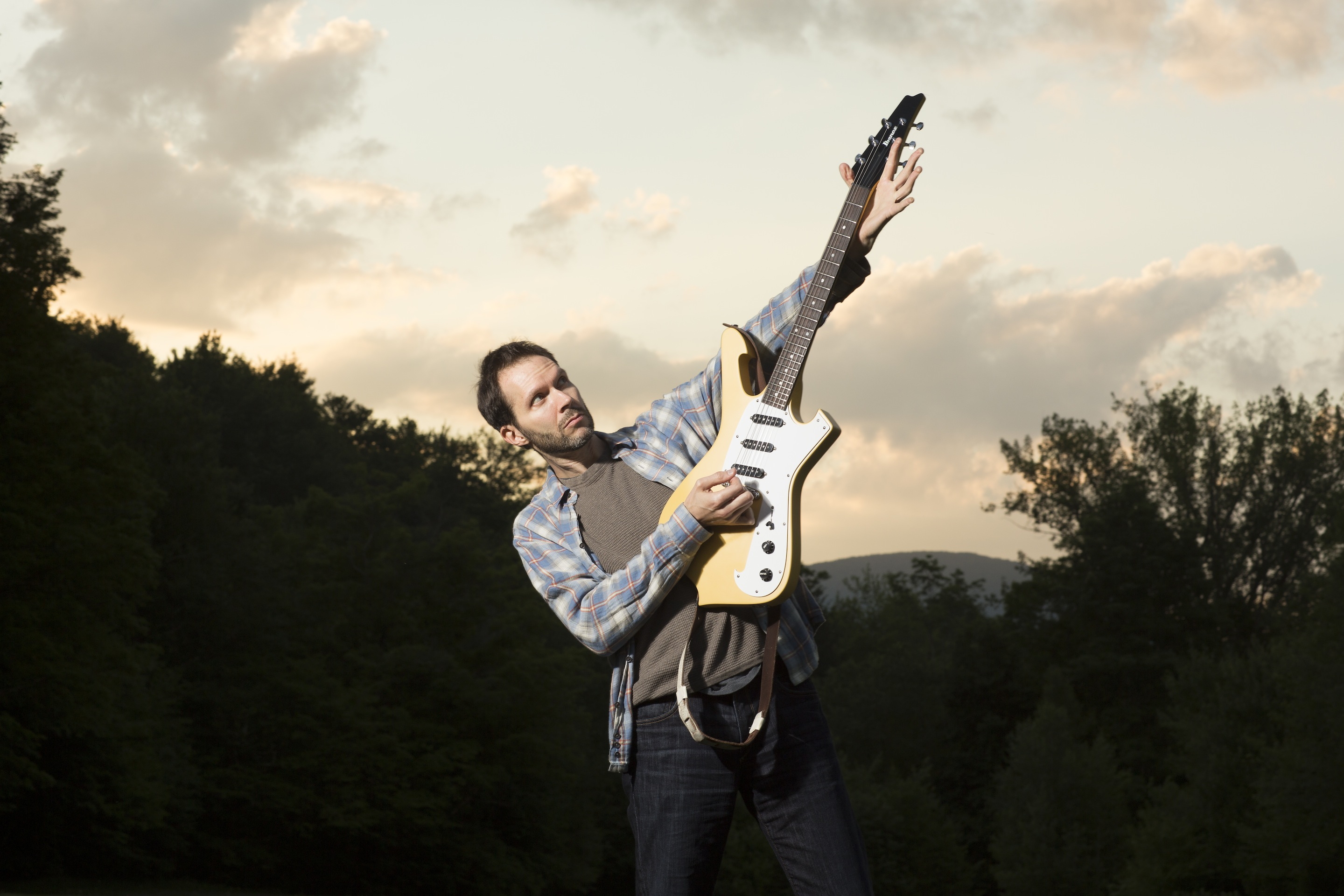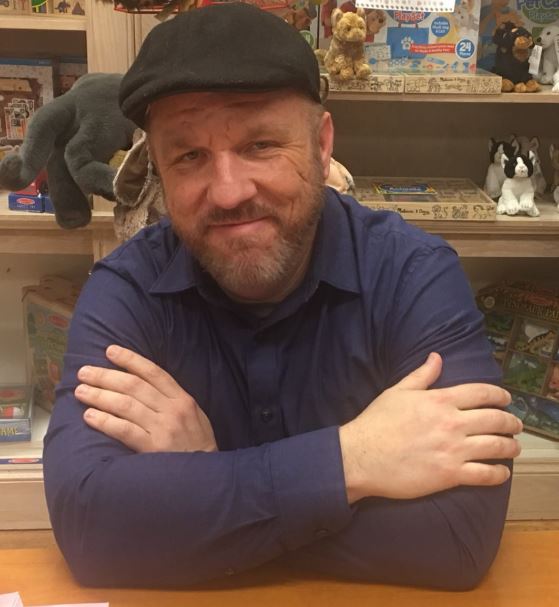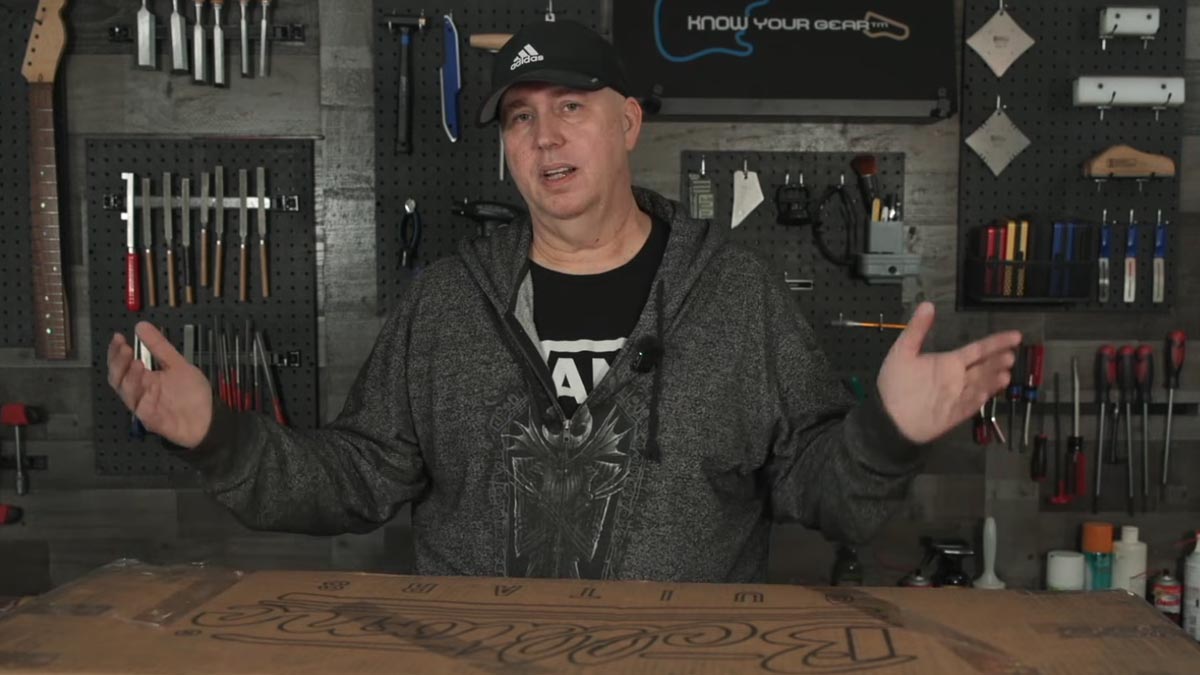Interview: Paul Gilbert Discusses This Summer's Great Guitar Escape and His Approach to Teaching

Paul Gilbert’s second annual Great Guitar Escape will take place July 8 to 12 at Full Moon Resort in Big Indian, New York.
The camp, which will be hosted by the Mr. Big and Racer X guitarist and other instructors, invites guitar players of all ages, levels and styles to immerse themselves in the instrument and hone their craft. Full-day activities are planned with evenings culminating in intimate jam sessions.
I recently spoke to Gilbert, who gave me the inside scoop on this year’s camp and more. Check out the links above for more info about the camp and the resort — and be sure to check out the complete camp schedule here.
GUITAR WORLD: What was the basis for starting the Great Guitar Escape?
I saw that Dweezil Zappa, Todd Rundgren and the guys from King Crimson were doing music camps at Full Moon Resort, and when they approached me about it, I thought it would be worth a try. I’ve played and taught at events like this before, but last year’s Great Guitar Escape was the first time I ever organized a camp myself. It went great, so I thought I’d do it again this year.
What makes this so different from some of the other music camps?
Mostly, it’s just the people who are performing and teaching. They are amazing! The best thing about the camp, for me, is that I get to choose the players I would like to learn from. My camp is about finding specific ways to become a better musician. It’s not just a photo-op with rock veterans with custom leather jackets and silver jewelry. The players who are here will really give you some valuable, musical ideas to take home. They are all people I personally admire, and any spare moments that I have, I’ll be sitting in the class with the students, getting some ideas too.
All the latest guitar news, interviews, lessons, reviews, deals and more, direct to your inbox!
Tell me about some of the guitar instructors who will be joining you.
The first guy I contacted was Adam Fulara. I’ve been watching him on YouTube for a couple of years, and I can’t believe what he can do with a guitar. Or maybe I should say two guitars at the same time. His technique is very non-traditional, but his musicality is world-class. And after contacting and getting to know him a bit, I realized he’ll bring great ideas about improvising and harmony to the camp, regardless of what technique you might use.
Andy Timmons is someone I’ve jammed with many times over the years, and we always have a great chemistry when playing together. Andy recently did an all-instrumental version of the Beatles’ Sgt. Pepper album. He plays all the vocal melodies, guitar parts, keyboard parts and orchestral parts with a single, live guitar performance. And did it all from memory. Andy has all the face-melting rock guitar vocabulary that anyone could want, but his style goes far beyond that.
Mimi Fox is one of the most exciting contemporary jazz guitarists I’ve heard. I might be biased, because I come from a rock background, so I tend to like players that have a lot of power and rhythmic drive to their playing. Mimi is fearless about “digging in” to the guitar and still keeps the sophistication that makes jazz beautiful. She’s also a teacher who can take potentially mind-numbing jazz concepts and present them with clarity and patience.
Scotty Johnson is a guitar instructor at the Berklee School of Music. He has also played guitar on several of my albums and tours. He is a master of fusion, blues and rock and has years of experience playing guitar in “the pit” of Broadway musicals. In addition to his inspiring playing, he is great at explaining music theory and how to apply it to the guitar.
Tony Spinner is stunning singer and guitarist who performs as a solo artist, toured for 10 years singing and playing guitar in Toto with Steve Lukather and has done multiple albums and concert tours as part of my band. Tony specializes in blues, rock and slide guitar. His love of vintage gear and vintage guitar styles culminates in authentic grooves and tones that make you want to squeeze the most possible emotion out of every note.
Are there any skill level requirements needed to attend?
I think anyone who loves music will have a great time. There will be plenty of useful guitar ideas at every level for people to learn from. The atmosphere of the camp is friendly and welcoming, so you don’t have to worry about being forced into any “guitar battles.” I do provide opportunities for jamming, but I steer these to be guitar “conversations” where the players listen to each other for inspiration.
What can campers expect, day to day, at the Great Guitar Escape?
In the morning, I know everyone has two things: an empty stomach and a fresh brain. So first we all have breakfast, then the first class is Scott Johnson’s Music Theory course. Scotty explains things like intervals and chord construction as clearly as possible, but I think it’s important to have this class in the morning when the brain is working the most efficiently. After Scotty’s class, there will be workshops with every other teacher, and lunch and dinner worked into the schedule at the right points to keep everyone going.
I trust the teachers to teach whatever style they like, and I’ll be dropping in to watch and learn from them as well. For my own classes, I do some of my typical seminars where I explain my approach to guitar technique, practicing and fingerboard shapes. But this time I’m also planning to have classes where the students are very involved. It’s important to me to listen to people play. So I’m going to get a couple of amps and a couple of guitar techs, line up everyone who wants to jam, and have a massive guitar conversation with everyone, one guitarist at a time. The goal of this exercise is not to display your fastest shred lick, but to lock into the key and the tempo.
This doesn’t require advanced technique or tons of scales or arpeggios. The exercise is built to encourage musicality, rhythmic sense and listening. From my experience as a teacher, these elements are almost always the ones that need the most attention. They aren’t difficult, and the musical reward is huge. It’s just a matter of paying attention to the music. And in my classes, that’s what we do.
What excites you the most about teaching students?
I like solving their technical problems and opening their ears to new ideas they hadn’t thought of before. And I just like hanging out with musicians. Music and guitar are my favorite things, so it’s fun to get together with other people who share the passion and talk about the details.
What is one area you feel most guitar students lack in and should concentrate on?
I still remember my original goal for playing guitar — before I ever played guitar. I had riffs and melodies in my head and I just wanted to get them onto the guitar. The source was my musical imagination. The tool was the guitar. The goal was to bring the sound into to air for me, and any listeners to hear. As I took lessons and actually started to play guitar, many other things were added to this equation. Visualizing the fretboard, learning the names of the notes, picking technique, legato technique, muting techniques, music theory, finding good gear and setting it up. And although all these things can be useful, they distracted me to the point where I forgot my original goal — to just play what I hear in my head.
Of course, I always had some of this goal with me as an instinct, but it took me decades to really remember how important it is. Many of my students are caught up in that same vortex of scales, arpeggios and “what scale to use over what chord.” I’ve got lots of solutions for this, all which I’ve used on myself, to get back to the music.
If you were stuck on an island with only three albums for the rest of your life. Which ones would they be, and why?
Ram by Paul McCartney, so I can remember being a kid. Van Halen II so I can remember being a teenager, and It Might As Well Be Swing by Count Basie and Frank Sinatra, so I have something to work on.
Have good/fun "rock and roll" stories from your Mr. Big days?
I wish I had more. I was hoping to join in the rock star fantasy perpetuated by the Ratt and Poison videos of the time. But most of the fans who sought me out after the show were not girls dressed in leather and mesh, but guys who wanted guitar lessons. As it turns out, I really like giving guitar lessons, so life is good!
For more information about Paul Gilbert’s Great Guitar Escape, visit greatguitarescape.com.
Photo: Michael Bloom
James Wood is a writer, musician and self-proclaimed metalhead who maintains his own website, GoJimmyGo.net. His articles and interviews are written on a variety of topics with passion and humor. You can follow him on Twitter @JimEWood.



James is a guitarist and freelance writer who's interviewed some of the biggest names in music. He is the author of four books and his writing credits include work for Guitar World, AXS and Yahoo! as well as for his hometown newspaper where he writes on a variety of topics with both passion and humor. As a guitarist, he's performed everywhere from local bars and nightclubs to some of the biggest stages in front of thousands of music fans.

